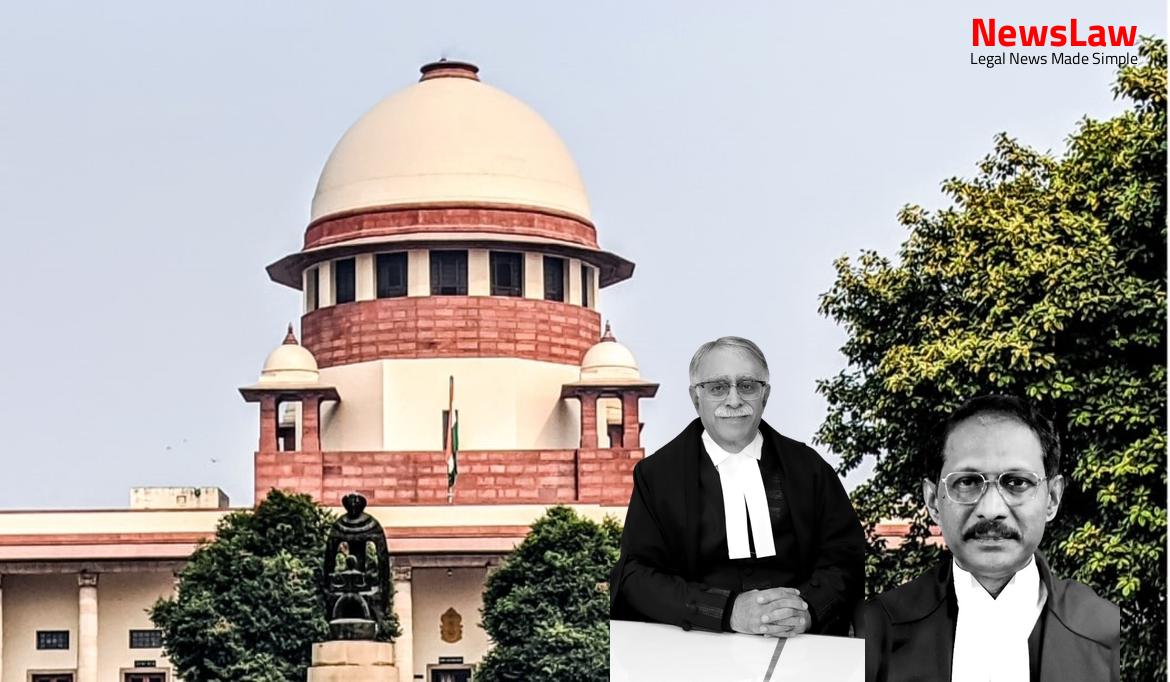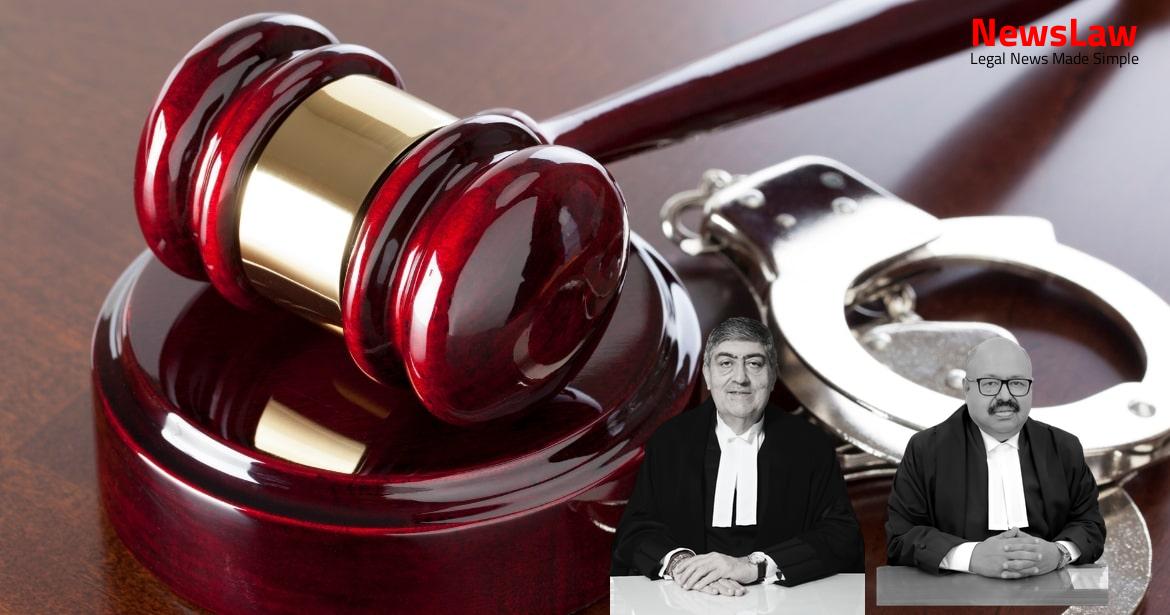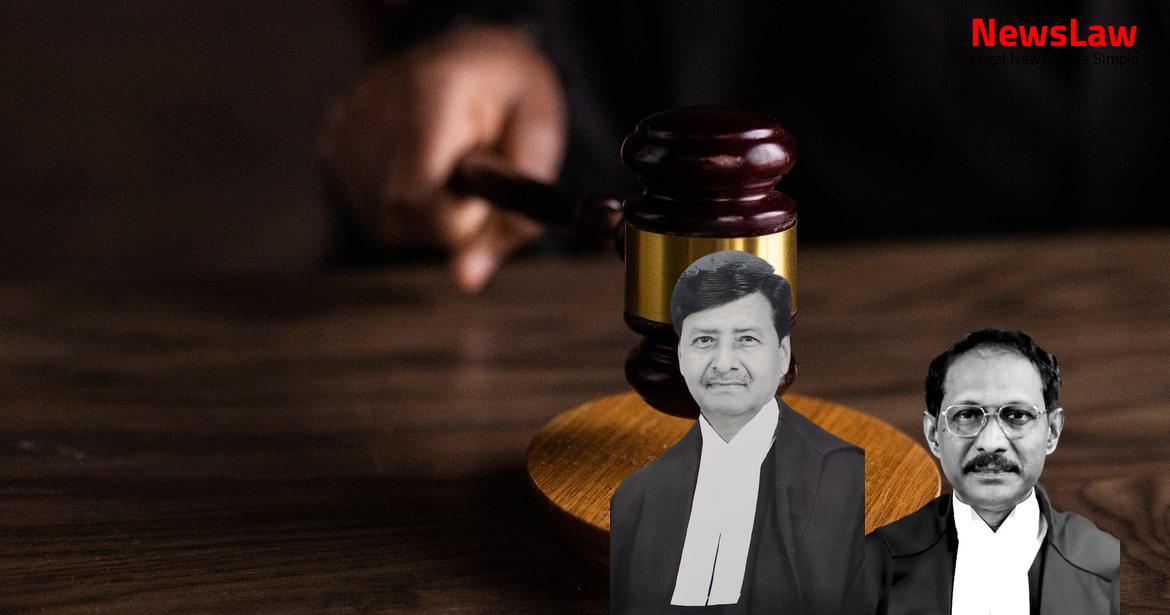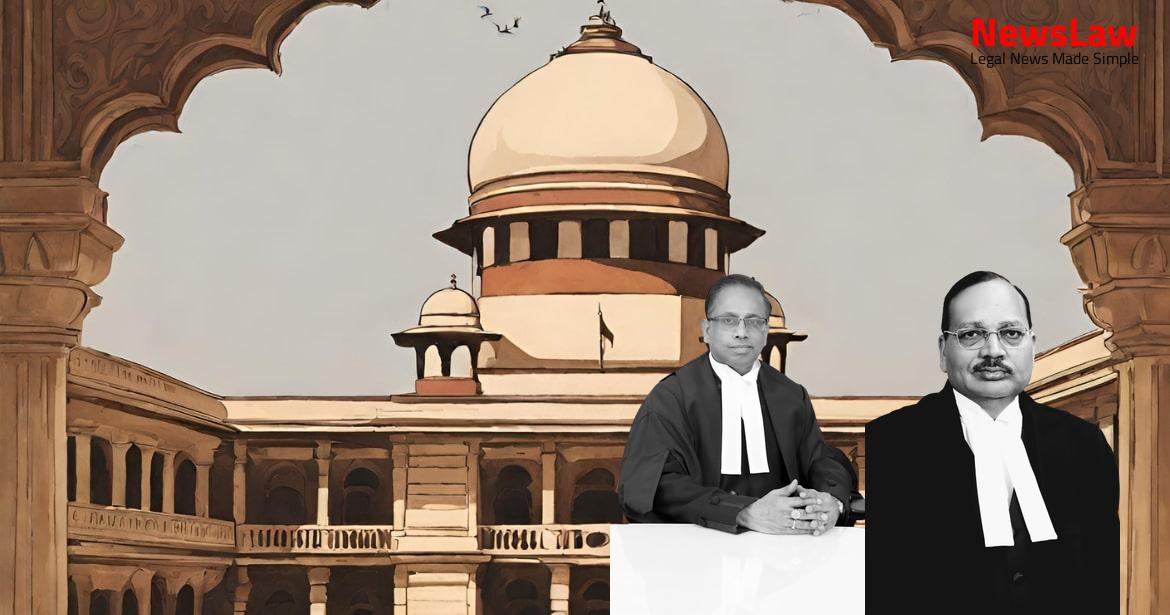In a recent landmark decision, the Supreme Court of India overturned the High Court of Madhya Pradesh’s judgment in a case involving the assault of the Chairman of the Waqf Committee in District Seoni. The case, which led to charges being framed under various sections of the IPC, saw the accused being acquitted initially. However, the Supreme Court’s intervention has directed the accused to stand trial for all offenses, including Section 307, ensuring justice is upheld in this matter.
Facts
- The High Court of Madhya Pradesh affirmed the acquittal of the accused- Respondents (Nos.2 to 9) of charges under various sections of the Indian Penal Code.
- The medical report mentioned the possibility of respiratory obstruction if pressure was applied on the scratch marks in the complainant’s mouth, nose, and throat, leading to grounds for charges under Sections 294 and 334 read with 34 of the IPC against all accused.
- The medical report did not indicate that the injuries caused by the accused were likely to result in the death of the complainant, hence no basis for the offense under Section 307 IPC against the accused.
- The complainant, who was the Chairman of the Waqf Committee in District Seoni, suffered abuse and beating to the point of unconsciousness during an official duty at a mosque to settle a dispute.
- The Additional Sessions Judge in Seoni framed charges under Sections 294, 332/34, and 307/34 IPC based on the opinion of the medical officer about the injury sustained by the complainant.
- A previous order in Criminal Revision No.4805 of 2019 set aside the earlier framing of charges on the ground of non-supply of documents to the accused, leading to the accused being taken into custody under Section 307 IPC on the same date.
- The complainant appealed against the order, leading to the impugned judgment before the High Court, which was passed in this context.
- The assessment of the medical report by the High Court was criticized as general and superficial, prompting the current criminal revision.
- The case involving the complainant’s assault was committed to the Court of Additional Sessions Judge, Seoni, after being taken to the district hospital and later discharged from the Asian Hospital, Nagpur, leading to the lodging of FIR No.133 of 2018.
- No case under Section 307 IPC was found to be made out.
- The Criminal Revision was dismissed as a result.
Also Read: Joint Liability and Common Intention: Supreme Court Verdict
Analysis
- The essential ingredients required to be proved in the case of an offence under Section 307 are: (i) that the death of a human being was attempted; (ii) that such death was attempted to be caused by, or in consequence of the act of the accused; and (iii) that such act was done with the intention of causing death.
- Courts have the authority to frame charges under Section 307 based on the material placed on record without requiring detailed assessment at that stage.
- The nature or extent of injury suffered is irrelevant for conviction under Section 307 as long as the injury is inflicted with the intent or knowledge requisite for murder.
- Intent coupled with some overt act in execution thereof is sufficient to justify a conviction under Section 307 even if the injury inflicted may not be capable of causing death.
- The expression ‘whoever attempts to commit an offence’ in Section 511 means ‘whoever intends to do a certain act with the intent or knowledge necessary for the commission of that offence.’
- The court must determine if the act was done with the intention or knowledge under circumstances specified in the section.
- Direct evidence is usually unavailable in such cases, and common intention may need to be inferred from proven facts.
- The intent to cause death is key, not the ritual nature or extent of the injury.
- An attempted criminal act does not need to be the final action.
- The doctor’s report indicated the possibility of death due to throttling, contradicting the lower courts’ view of absence of intent.
- Intent may not always be proved with hard evidence and may need to be inferred from the case’s facts and circumstances.
- Even if injuries are considered simple, their extent is irrelevant if intent is present.
- Common intention requires prior agreement among participants, regardless of the severity of inflicted injuries.
- Examination by a doctor suggesting the possibility of throttling raises doubts over the simplicity of injuries without rigorous cross-examination.
- Relevant facts for determining Section 34IPC include the manner of attack, nature of injuries, weapons used, and the intent behind the assault.
- Under Article 136 of the Constitution of India, the Supreme Court has plenary appellate power over all Courts and Tribunals in India.
- The Court has self-imposed limitations on interference, especially in cases where the lower court acted perversely or improperly.
- The determination of intention to kill or knowledge of death under Section 307 of the IPC is a question of fact, not law.
- In criminal appeals, the Supreme Court does not typically interfere with concurrent findings of fact, except in exceptional circumstances.
- Section 34 of the IPC holds co-perpetrators equally liable based on common intention and community of purpose, even if the plan was not prearranged.
- All offenders involved in a specific criminal act based on common intention are liable under Section 34, in addition to the principal offender.
- The minor nature of injuries is not sufficient reason to not frame a charge under Section 307 IPC.
- The law laid down by the Court emphasizes that minor injuries do not preclude the framing of a charge under Section 307 IPC.
- The judgement impugned in Criminal Revision No. 3125 of 2021 is set aside based on the above rationale.
Also Read: Land Dispute: Decree Quashed by the Supreme Court of India
Decision
- The Trial Court is directed to have the Respondents stand trial for all the offences for which charges have been framed, including Section 307.
- The trial shall proceed on its own merits as per law, uninfluenced by the observations made earlier in the judgment which were to test the propriety of the impugned order.
- The trial is to be expedited for a timely resolution.
- A copy of this judgment will be transmitted to the Registrar General of the High Court of Madhya Pradesh for further action.
- Any pending applications will be disposed of accordingly.
- The appeal is allowed based on the decisions made.
Also Read: Custodial Torture and Legal Accountability: Supreme Court’s Landmark Decision
Case Title: SHOYEB RAJA Vs. STATE OF MADHYA PRADESH (2024 INSC 731)
Case Number: Crl.A. No.-003327-003327 – 2024



